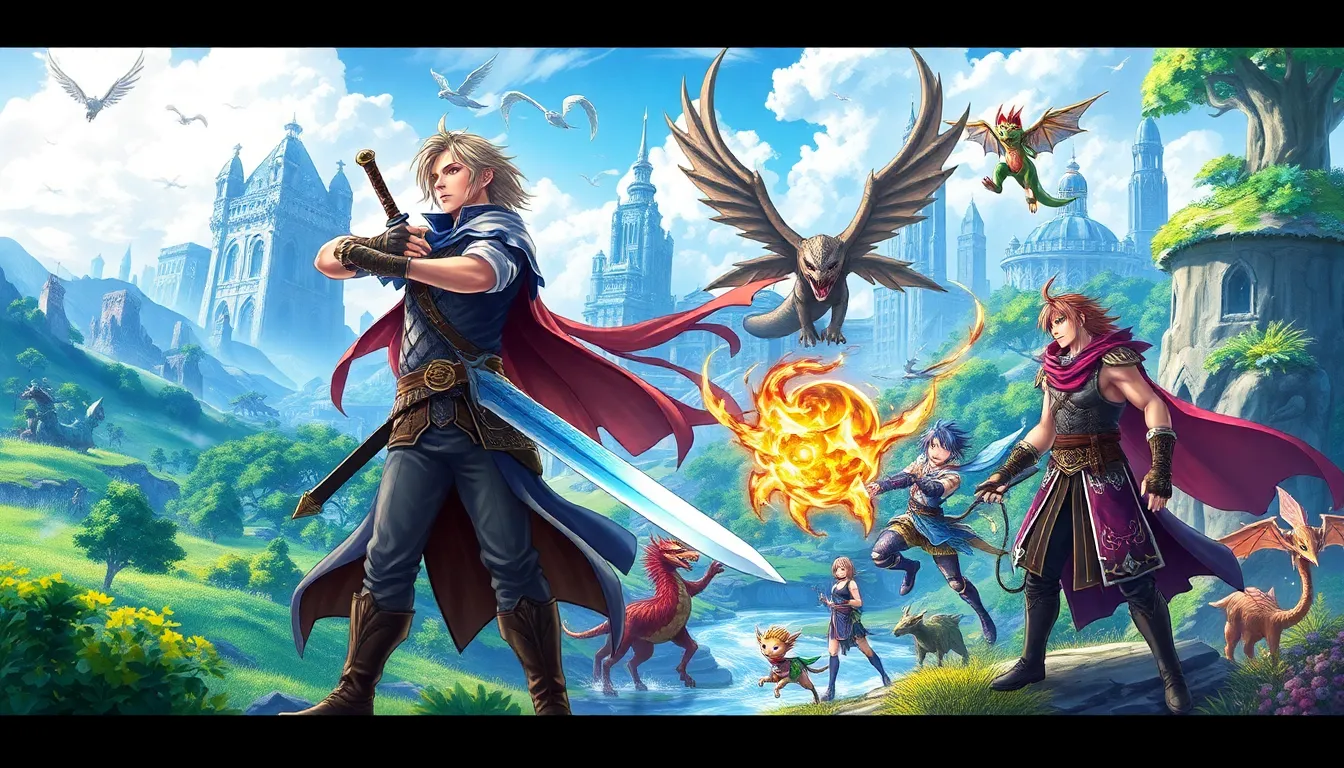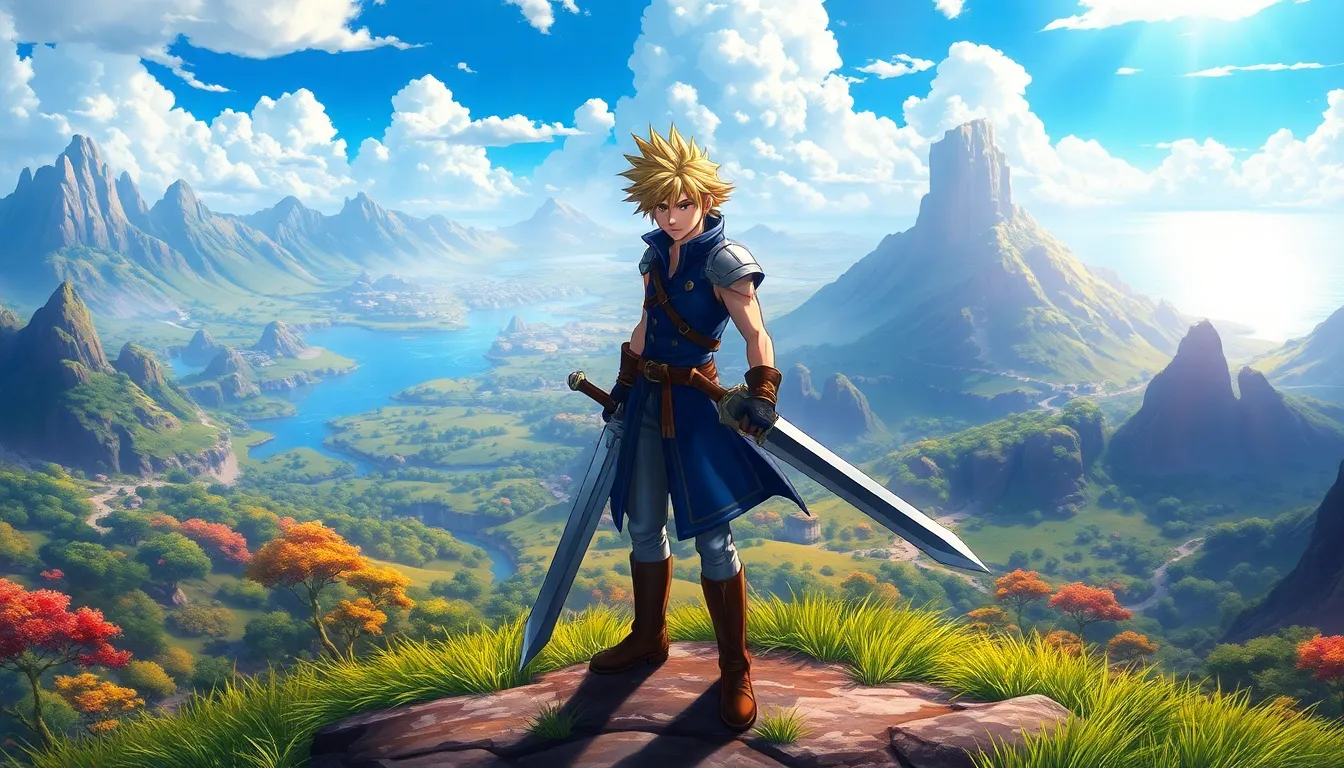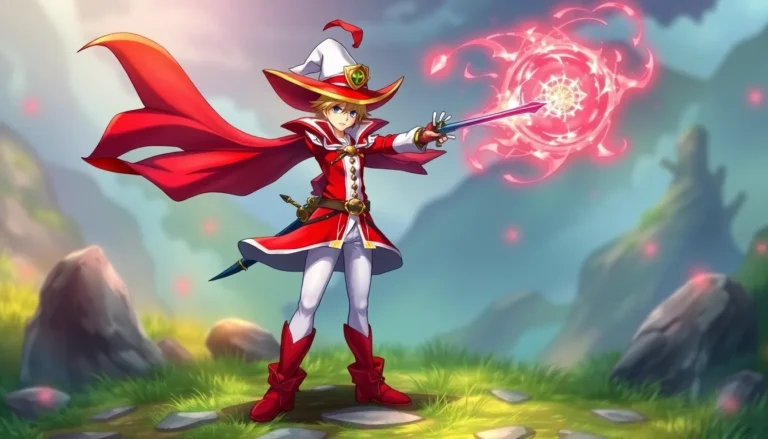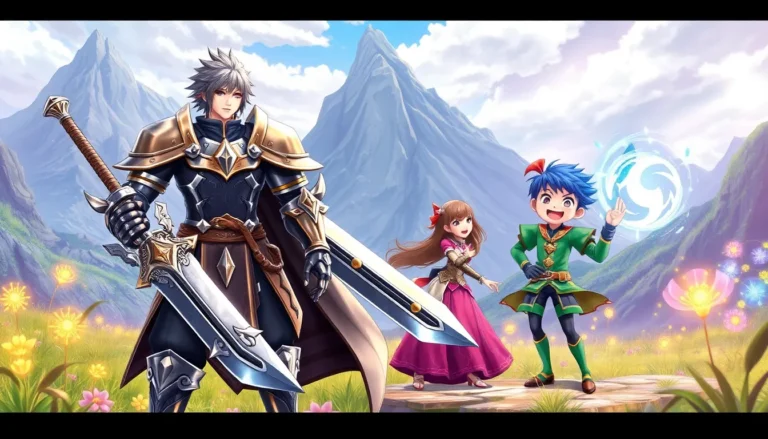In a world where heroes wield swords bigger than their egos and chocobos are the ultimate mode of transport, “Final Fantasy” stands as a legendary titan of gaming. This iconic franchise has enchanted players for decades, blending epic storytelling with jaw-dropping visuals and unforgettable characters. Who wouldn’t want to save the world while looking fabulous in a pair of oversized boots?
Table of Contents
ToggleOverview of Final Fantasy
Final Fantasy stands as a cornerstone of the role-playing game genre, first launched in 1987 by Square Enix. Each installment transports players to a unique world, rich with lore and engaging narratives. Characters become memorable figures, such as Cloud Strife and Tifa Lockhart, who resonate with fans across generations.
The series is renowned for its innovative gameplay mechanics, including turn-based battles and real-time action elements. In particular, the Materia system in Final Fantasy VII enhanced strategic depth, allowing players to customize their characters’ abilities. Such features often define player experiences.
Visually, the franchise consistently pushes boundaries. Titles showcase stunning graphics, from pixel art in the early games to breathtaking 3D environments in modern entries. Each visual upgrade highlights technological advancements in gaming.
Moreover, the music of Final Fantasy captivates players. Composed by Nobuo Uematsu, soundtracks elevate emotional moments and reinforce storytelling. Tracks like “One-Winged Angel” have left a lasting impact, contributing to the franchise’s legacy.
Final Fantasy continues to evolve with new releases, including mobile adaptations and remakes that reimagine beloved classics. Fans eagerly await each installment, demonstrating the series’ enduring popularity. This legacy reflects not just gameplay, but a community unified by shared adventures.
Overall, the franchise’s commitment to quality storytelling, character development, and visual artistry ensures its place as a titan in the gaming industry, continually captivating players and inspiring future creators.
Key Installments in the Series

Each installment in the “Final Fantasy” series contributes uniquely to its rich legacy. The early games set the foundation for an iconic franchise that continues to evolve.
Final Fantasy I to IV
Final Fantasy I launched in 1987, introducing players to turn-based combat and job systems. Adventures in this world laid the groundwork for future narratives. Final Fantasy II departed from character-centric storytelling, emphasizing experience points instead. The third installment, Final Fantasy III, showcased job classes, allowing players to customize their characters like never before. Innovations continued with Final Fantasy IV, featuring a deep narrative and memorable characters like Cecil Harvey and Kain Highwind.
Final Fantasy V to IX
Final Fantasy V expanded on the job system, providing flexibility in character development. Players experienced a rich story intertwined with humor and camaraderie. With Final Fantasy VI, the focus shifted to a larger cast, delivering a poignant narrative that retained emotional depth. Iconic characters like Terra Branford and Kefka Palazzo captivated audiences. Final Fantasy VII became a cultural phenomenon, blending stunning visuals with a gripping storyline. Cloud Strife’s journey and the Materia system captured the imagination of many players. Final Fantasy VIII and IX further explored themes of love and friendship, each bringing unique gameplay elements and artistic styles.
Final Fantasy X and Beyond
Final Fantasy X marked the series’ transition to full 3D graphics, enhancing storytelling through cinematic cutscenes. Tidus and Yuna’s journey resonated with many fans, showcasing complex themes. The franchise then ventured into the vibrant world of Final Fantasy XI, a groundbreaking MMORPG. Final Fantasy XII introduced real-time combat mechanics, shifting gameplay dynamics. Recent titles like Final Fantasy XV and the remake of VII continued to innovate, blending open-world exploration with rich narratives, ensuring the series remains relevant in the gaming landscape.
Gameplay Mechanics
Gameplay mechanics form the backbone of the Final Fantasy franchise, engaging players through inventive systems and character interactions. While the series evolves, fundamental elements remain, ensuring immersive experiences.
Battle Systems
Battle systems in Final Fantasy vary significantly across titles. Turn-based combat characterizes many early installments, allowing players to strategize each move. Action-oriented mechanics appear in recent titles, enabling real-time engagements that heighten excitement. For instance, Final Fantasy VII Remake adapts the traditional formula, incorporating strategic pauses for tactical decisions. Players often appreciate the integration of summons, unique abilities, and elemental systems, adding layers to combat. Players integrate character strengths to devise winning strategies, which enhance engagement and skill development.
Character Development
Character development stands as a key feature in Final Fantasy. Each installment showcases intricate narratives surrounding iconic heroes and villains. Players witness growth through compelling story arcs and relationship dynamics. For example, Final Fantasy VII presents character backstories that deepen emotional connections. Progression systems allow for customization in abilities and skills tailored to individual playstyles. The job system introduced in earlier titles permits players to create their ideal party compositions. By emphasizing friendships and rivalries, the franchise fosters memorable experiences that resonate with players long after the game ends.
Music and Sound Design
Music plays a pivotal role in the “Final Fantasy” experience. Composed primarily by Nobuo Uematsu, the soundtrack enhances emotional depth, creating unforgettable moments throughout the series. Iconic tracks like “One-Winged Angel” and “To Zanarkand” resonate deeply with players, often evoking nostalgia.
Sound design complements the music effectively. Each game features immersive soundscapes that transport players into vibrant worlds. From the chime of victory after a battle to the haunting melodies that accompany dramatic cutscenes, sound effects enrich gameplay.
Themes are woven intricately into the audio design. Each installment features unique motifs that reflect the story’s essence, whether it’s the urgency of battle or the tranquility of exploration. Character themes often evolve throughout the game, highlighting their growth and emotional journeys.
Instrumentation varies across titles, reflecting technological advancements. Early installments utilized limited MIDI compositions, while modern games leverage orchestras for a richer audio experience. The evolution of sound contributes significantly to the franchise’s atmosphere and storytelling.
Collaboration with various artists has further enhanced the audio experience. Concerts like the “Distant Worlds” series bring music from “Final Fantasy” to life, engaging fans worldwide. These performances showcase the series’ timeless appeal, serving as a bridge between the games and concert halls.
In-game music options allow players to experience beloved tracks while exploring new environments. Many games feature a sound test or music player, enabling players to revisit favorites at their leisure. Overall, the combination of powerful music and immersive sound design cements “Final Fantasy” as a leader in the realm of video game audio.
Cultural Impact and Legacy
Cultural impact defines “Final Fantasy” as more than just a video game series; it stands as a cornerstone in gaming history. The franchise influenced the role-playing game genre extensively, contributing to shifts in storytelling and gameplay mechanics. Over 164 million copies sold across the world underscore its popularity, with fans deeply engaged in its expansive lore.
Influential trends emerged from the series, like rich narratives intertwined with character-focused stories. Iconic elements such as summoned creatures and job systems became staples in other games. Players often cite “Final Fantasy” when discussing their entry into the RPG genre, showcasing its role as a gateway for many.
A dedicated fanbase spans generations, forming communities that support each installment. Events like Fan Festivals attract thousands, creating experiences for fans to celebrate their passion. The series’ music resonates beyond the gameplay, with orchestras performing soundtracks worldwide. Events such as “Distant Worlds” highlight willful nostalgia and further solidify its cultural significance.
Legacy extends to adaptations across various media. Animated films, novels, and merchandise reflect the franchise’s cultural reach. Each adaptation introduces new audiences to the beloved universe, ensuring its relevance over time.
Recognition from industry awards also highlights its enduring legacy. Multiple “Game of the Year” awards demonstrate its impact on game design and storytelling. As technology evolves, so does “Final Fantasy,” maintaining its position as a leader in innovation. The franchise’s ability to adapt keeps it fresh and engaging for both new and returning players.
Development of newer titles, including remakes and spin-offs, indicates a commitment to the series. The anticipation surrounding each release showcases the ambition to captivate audiences further. Through studio announcements and teaser trailers, “Final Fantasy” remains culturally significant, continuing to shape the gaming landscape for years to come.
The legacy of “Final Fantasy” continues to thrive as it evolves alongside technology and player expectations. Its ability to blend innovative gameplay with rich storytelling ensures that each new installment captures the hearts of both longtime fans and newcomers alike. With its iconic characters and unforgettable music, the franchise remains a cultural phenomenon that transcends generations.
As anticipation builds for future releases and adaptations, the commitment to quality and creativity within “Final Fantasy” promises to keep it at the forefront of the gaming industry. This enduring series not only shapes the RPG genre but also leaves an indelible mark on the world of video games, inviting players to embark on new adventures time and time again.





